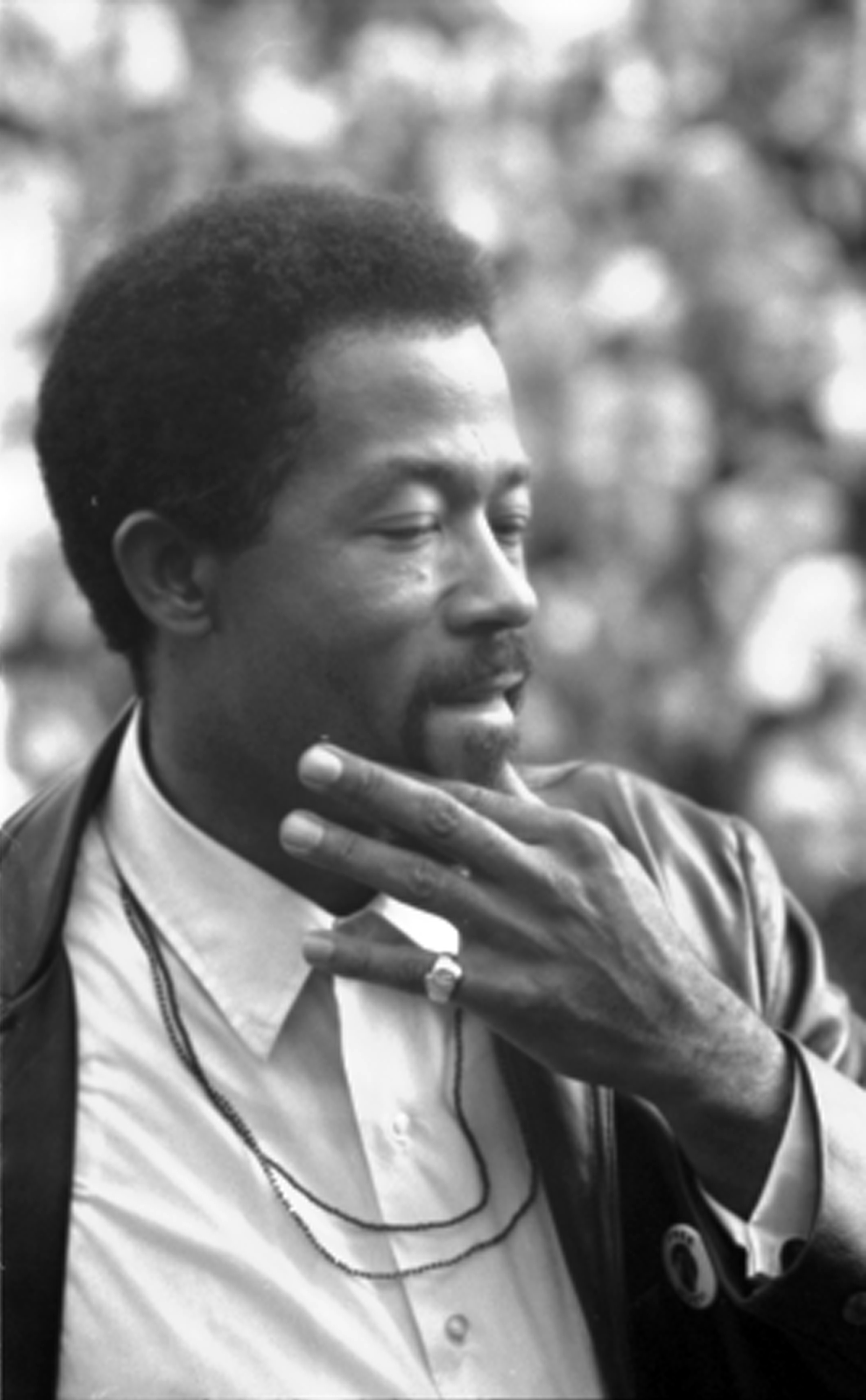
Eldridge Cleaver
Leroy Eldridge Cleaver (August 31, 1935 – May 1, 1998) was an American writer and political activist who became an early leader of the Black Panther Party.[1][2]
Eldridge Cleaver
May 1, 1998 (aged 62)
Writer, political activist
Black Panther (1967–1971)
Peace and Freedom (1968)
Republican (1980s)
2
In 1968, Cleaver wrote Soul on Ice, a collection of essays that, at the time of its publication, was praised by The New York Times Book Review as "brilliant and revealing".[3] Cleaver stated in Soul on Ice: "If a man like Malcolm X could change and repudiate racism, if I myself and other former Muslims can change, if young whites can change, then there is hope for America."[4]
Cleaver went on to become a prominent member of the Black Panthers, having the titles Minister of Information and Head of the International Section of the Panthers, while a fugitive from the United States criminal justice system in Cuba and Algeria. Cleaver was convicted of a series of crimes including burglary, assault, rape, and attempted murder and eventually served time in Folsom and San Quentin prisons until being released on parole in 1968.[1][2] In 1968 he became a fugitive after leading an ambush on Oakland police officers, during which two officers were wounded. Cleaver was wounded during the clash and Black Panther member Bobby Hutton was killed. As editor of the official Panthers' newspaper, The Black Panther, Cleaver's influence on the direction of the party was rivaled only by founders Huey P. Newton and Bobby Seale. Cleaver and Newton eventually fell out with each other, resulting in a split that weakened the party.[5]
After spending seven years in exile in Cuba, Algeria, and France, Cleaver returned to the U.S. in 1975, where he became involved in various religious groups (Unification Church and CARP) before joining the Church of Jesus Christ of Latter-day Saints, as well as becoming a conservative Republican, appearing at Republican events.[6]
Biography[edit]
Early life[edit]
Eldridge Cleaver was born in Wabbaseka, Arkansas. As a child he moved with his large family to Phoenix and then to Los Angeles.[1] He was the son of Leroy Cleaver and Thelma Hattie Robinson.[7] He had four siblings: Wilhelima Marie, Helen Grace, James Weldon, and Theophilus Henry.[7] Both of his grandfathers were Protestant preachers.[8]
As a teenager, he was involved in petty crime and spent time in youth detention centers. At the age of 18, he was convicted of a felony drug charge (marijuana) and sent to the adult prison at Soledad. In 1958, he was convicted of rape and assault with intent to murder, and served time in Folsom and San Quentin prisons.[1][2] While in prison, he was given a copy of The Communist Manifesto.[7]
Cleaver was released on parole December 12, 1966, with a discharge date of March 20, 1971. In 1968 he was arrested on violation of parole by association with individual(s) of bad reputation, and control and possession of firearms.[9] Cleaver petitioned for habeas corpus to the Solano County Court, and was granted it along with a release of a $50,000 bail.[7]
Black Panther Party[edit]
Cleaver was released from prison on December 12, 1966, with the help of Edward Michael Keating, founder of Ramparts magazine.[10] He was writing for Ramparts magazine and organizing efforts to revitalize the Organization of Afro-American Unity.[11] The Black Panther Party (BPP) was only two months old.[7] He then joined the Oakland-based BPP, serving as Minister of Information, or spokesperson. What initially attracted Cleaver to the Panthers, as opposed to other prominent groups, was their commitment to armed struggle.[12]
In 1967, Cleaver, along with Marvin X, Ed Bullins, and Ethna Wyatt, formed the Black House political/cultural center in San Francisco. Amiri Baraka, Sonia Sanchez, Askia Toure, Sarah Webster Fabio, Art Ensemble of Chicago, Avotcja, Reginald Lockett, Emory Douglas, Samuel Napier, Bobby Hutton, Huey Newton, and Bobby Seale were Black House regulars.[13] The same year, he married Kathleen Neal Cleaver (divorced 1987), with whom he would have son Ahmad Maceo Eldridge (born 1969, Algeria; died 2018, Saudi Arabia) and daughter Joju Younghi (born July 31, 1970, North Korea).[2][14]